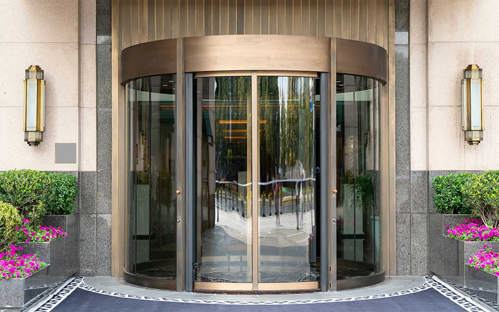Most automated doors make use of a sensor, either using radar or pressure to identify an approaching person. For restricted areas, it’s possible to integrate an access control system such as a card swiping device or code machine within the door system to maintain security.
Once a person is detected, small DC motors are responsible for the movement of the door. In a sliding door, these are typically found at the top of the doorframe to provide the required linear motion. While automated doors require at least some level of maintenance throughout their service life, choosing the right motor to begin with is crucial to ensuring continuous performance.
This includes choosing a robust motor with a long service life. With some automatic doors operating around the clock, it’s vital to choose DC motors that offer the required precision, even over extended periods.

In an emergency, it may be necessary to operate the doors manually. It can be helpful to have motors with a low back-drive torque so that the doors can be easily operated by a person.
Opting for motors produced by a specialist manufacturer with a focus on building automation can help to ensure the small DC motors chosen are a fit for the required application. Bühler Motor, supplied exclusively to the UK by EMS, offers a variety of motors tailored to the sector. This includes the 63mm brushed DC motor range, complete with copper commutation and a 2-pole magnet system. The larger 63x125 model can offer torques up to 32 Ncm, with a life expectancy more than 4,000 hours.
As more businesses look to automation to improve working processes, it’s important that the simple things aren’t left behind. Identifying areas for improvement starts at the entrance, and with robust, reliable DC motors, it’s an investment that will continue to deliver well into the future.











